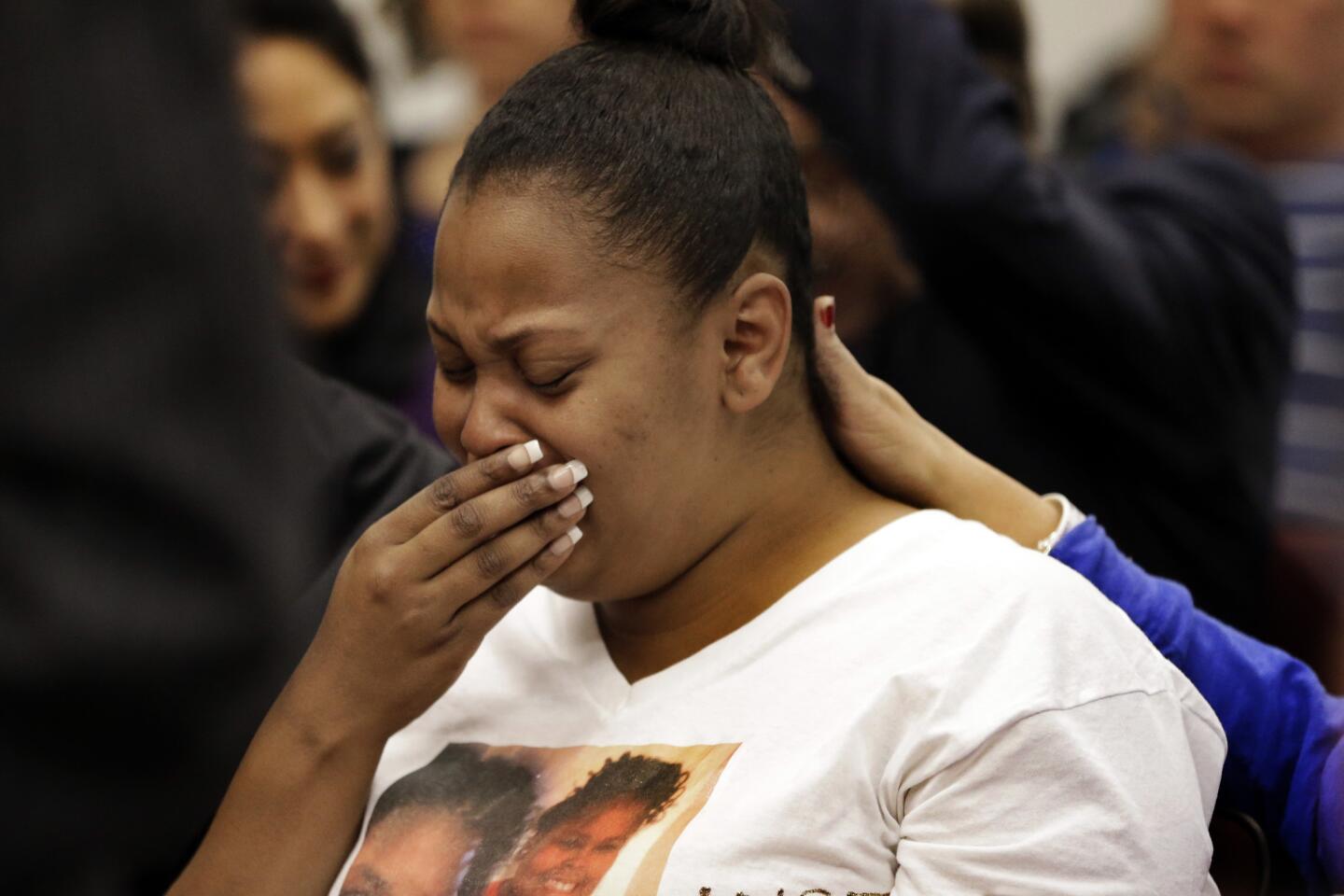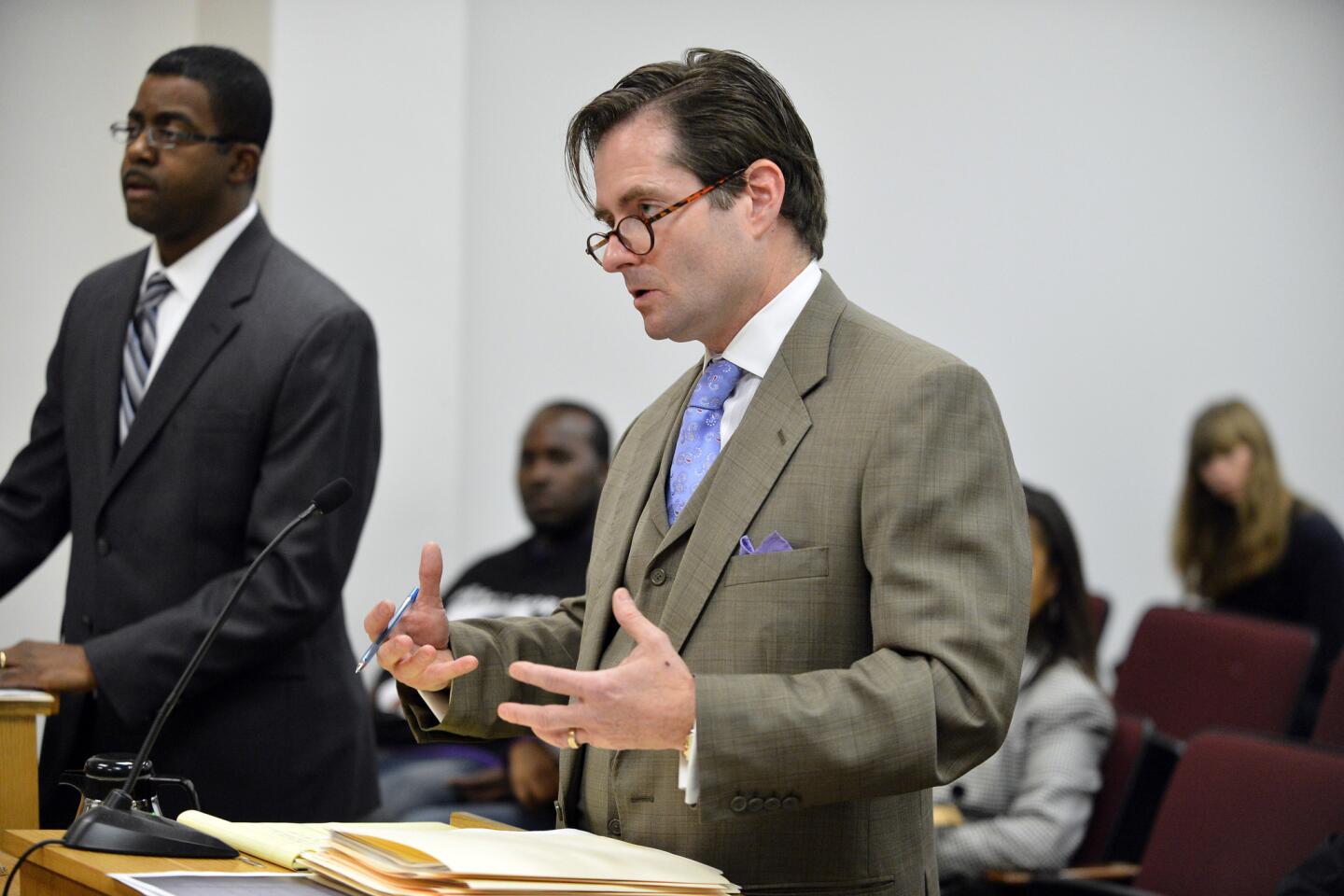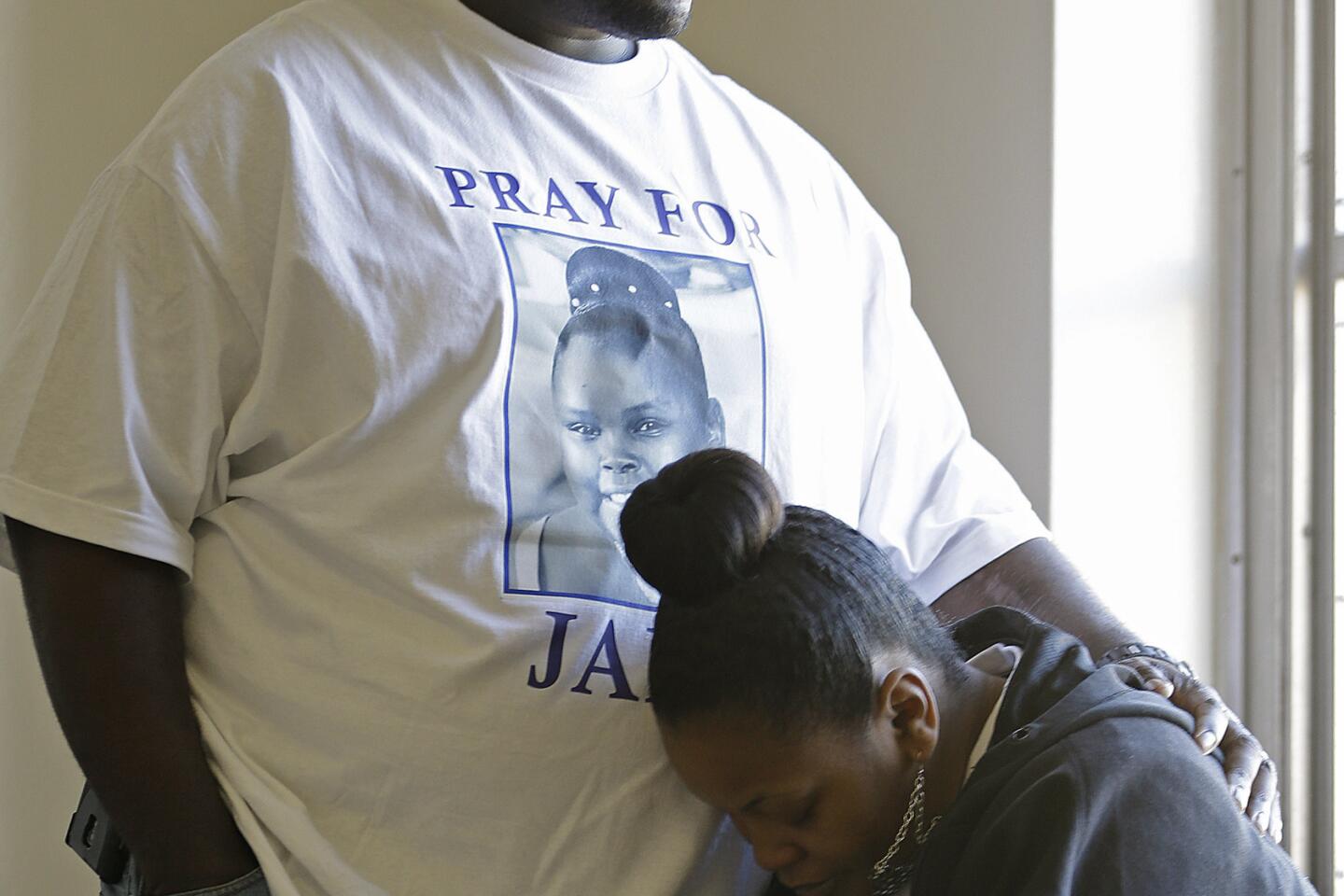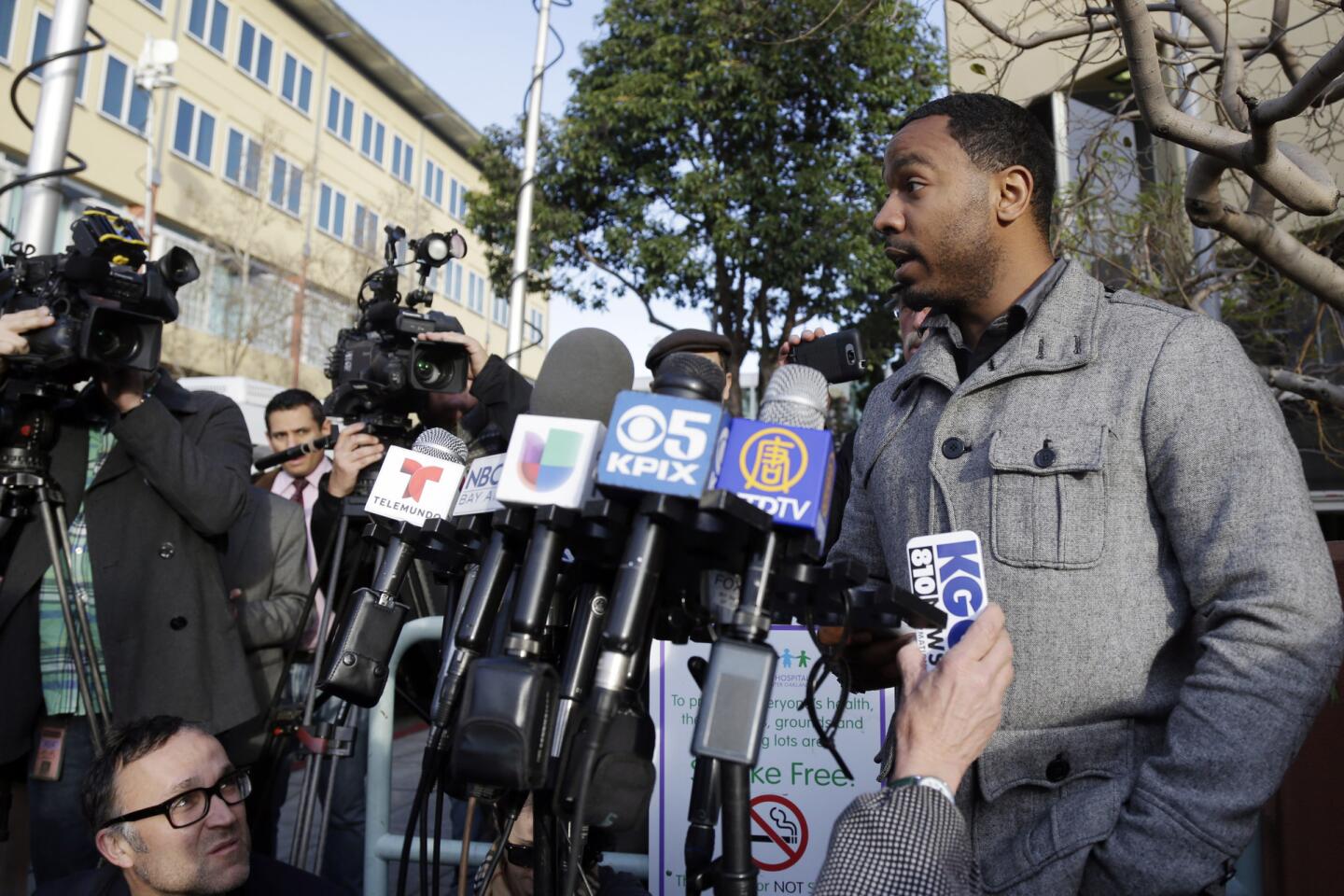Jahi McMath’s family battles hospital over brain-dead girl
- Share via
The family of Jahi McMath this week has continued to clash with hospital officials over what to do with the brain-dead 13-year-old girl.
The family has been trying to find a facility that will take Jahi in while at the same time fighting in court to keep her on a ventilator at Children’s Hospital Oakland, where she was declared brain dead on Dec. 12 -- three days after a tonsillectomy surgery.
Sam Singer, a public relations consultant retained by the hospital, said the family must find an outside physician willing to insert breathing and feeding tubes, a way to transport Jahi and a nursing care facility that is willing to accept “a deceased person.”
“The hospital continues to give its deepest condolences to the family, and we hope they can come to terms with the death of Jahi McMath,” Singer said outside the hospital.
Jahi suffered heavy bleeding, cardiac arrest and “whole brain death” — defined as an irreversible cessation of all functions of the entire brain, including the brainstem — on Dec. 12. Two hospital physicians and three outside doctors requested by the family deemed her brain-dead, court records show, and the county coroner was notified. But the family protested the hospital’s intention to remove Jahi from a ventilator.
Tests by an independent physician named by the court also determined that the girl is legally dead. They showed no blood flow to the brain, an inability to breathe on her own and no sign of electrical activity.
Her mother disagrees.
“My daughter is breathing,” Nailah Winkfield told reporters Monday after an Alameda County judge issued the temporary restraining order through Jan. 7. “She moves. When I go in there and touch her, she moves her whole body, her legs, her shoulders. How can you possibly say my child is dead if she responds to my voice?”
There is broad medical and legal consensus that whole brain death constitutes one of two legal definitions of death. A Harvard Medical School panel first put forth the standard in 1968, and in 1981 a presidential council proposed that a uniform statute be adopted nationwide. It was published as the “Uniform Determination of Death Act.”
Another presidential council reaffirmed in 2008 that “whole brain death” is legal death.
However, in her petition for an emergency stay in the state court of appeal, Winkfield contends that the act violates her freedom of religion and privacy under the California Constitution.
The temporary restraining order initially issued by Alameda County Judge Evelio Grillo on Dec. 20 had been set to expire at 5 p.m. Monday. The family attorney, who sought the original restraining order and the extension, is appealing Grillo’s determination that Jahi is brain-dead and filed a separate case in federal court.
Singer said hospital attorneys plan to fight all three.
The McMath family lawyer has said three facilities have expressed a willingness to accept Jahi, but Singer said “this hospital has had no substantive conversations with any of them.”
Two West Coast facilities withdrew their offers, family members said, but they maintained Monday that a New York facility is willing to accept the girl.
ALSO:
FTA pushes for greater rail safety in wake of worker deaths
Two children among four people found dead in Fontana home
Opponents say housing plan would destroy Native American site
More to Read
Sign up for Essential California
The most important California stories and recommendations in your inbox every morning.
You may occasionally receive promotional content from the Los Angeles Times.












